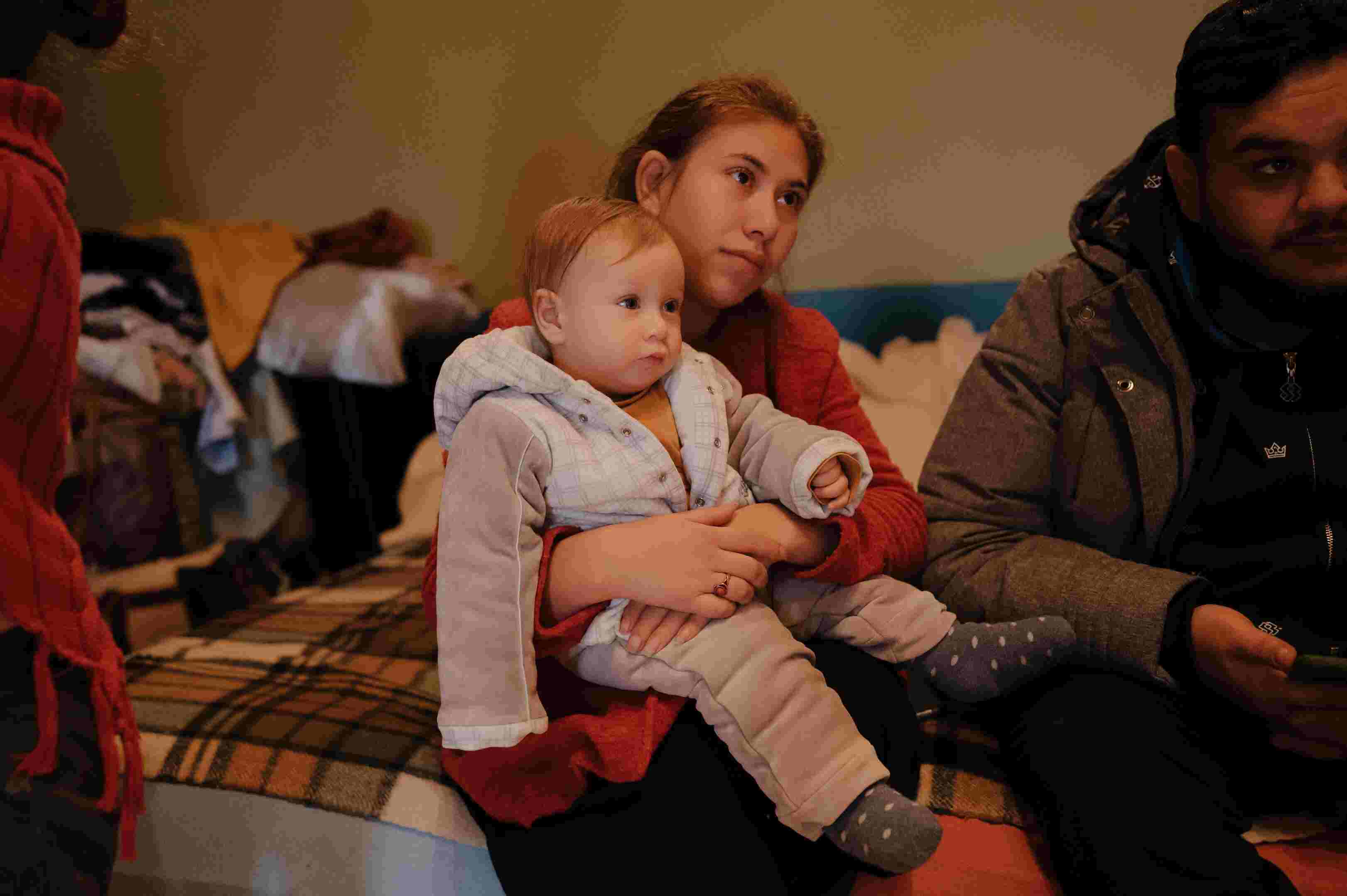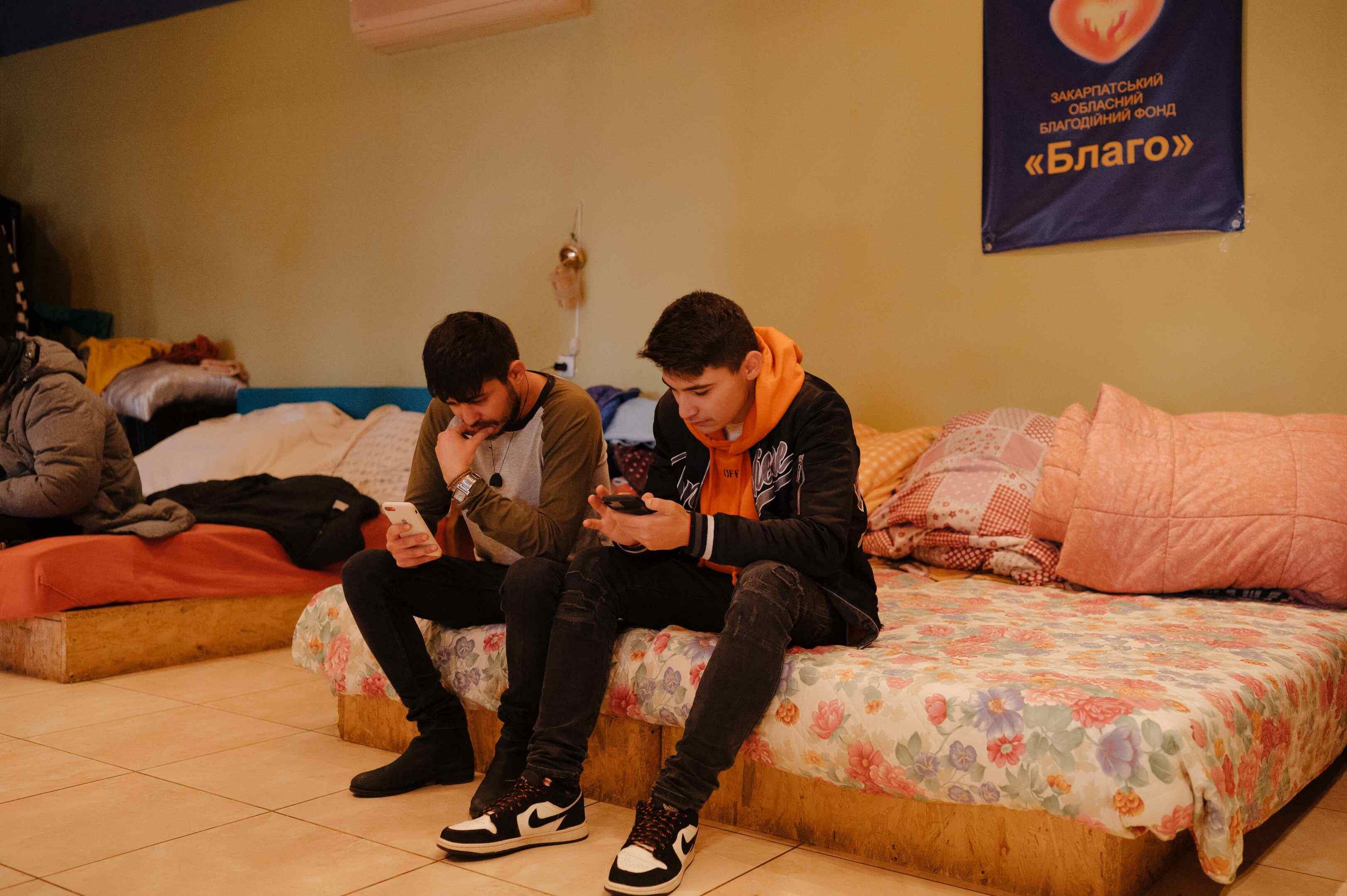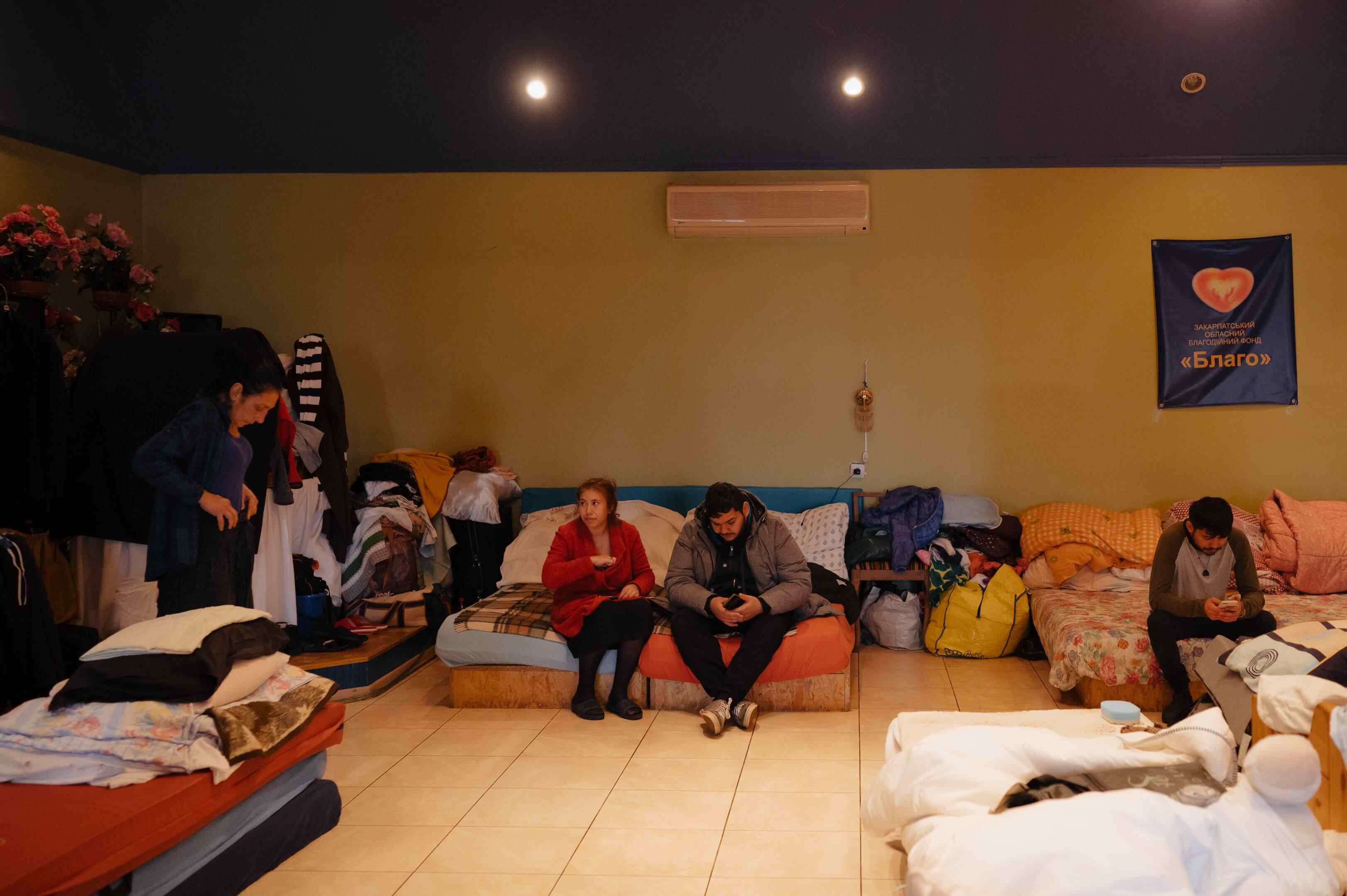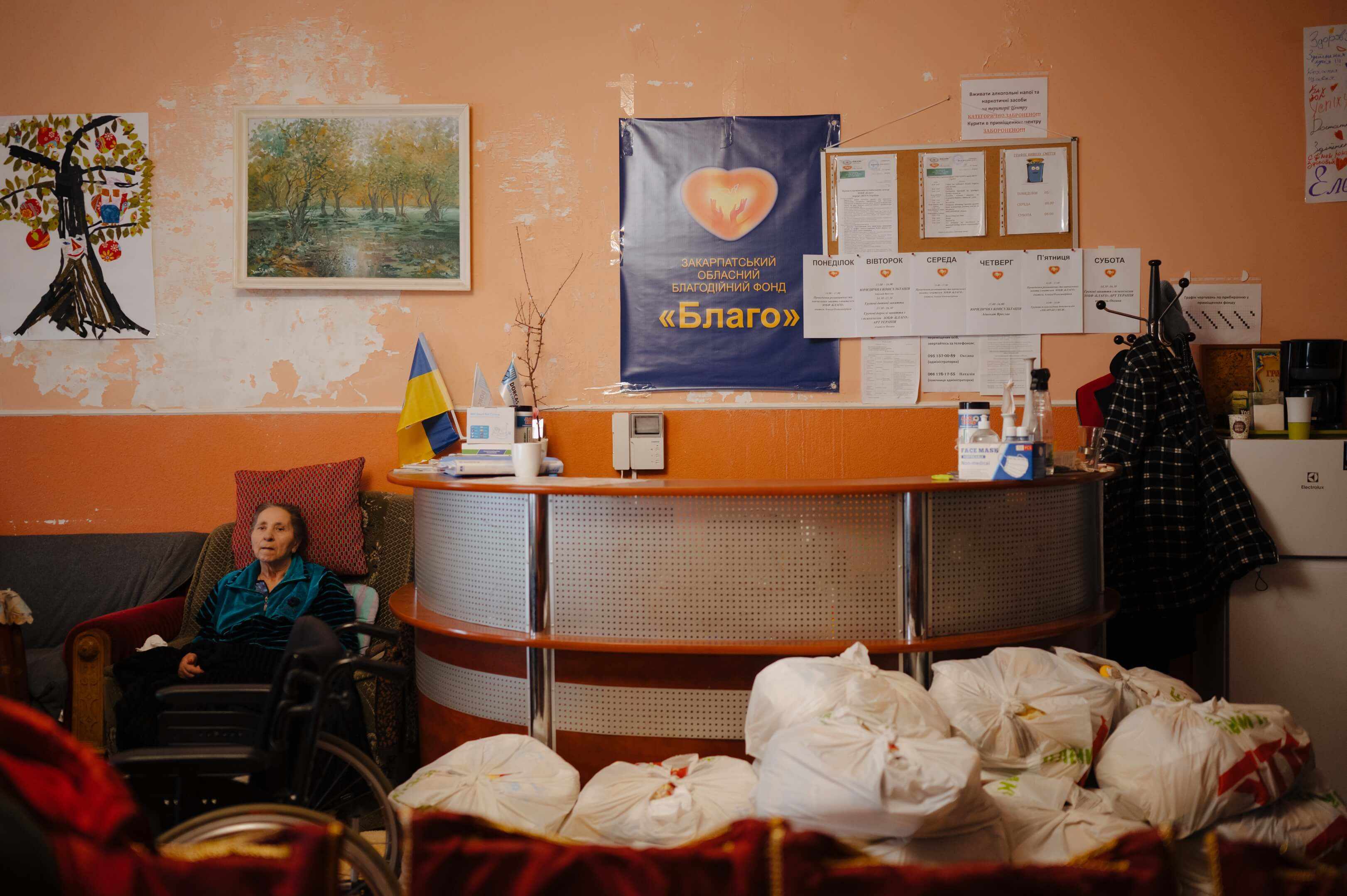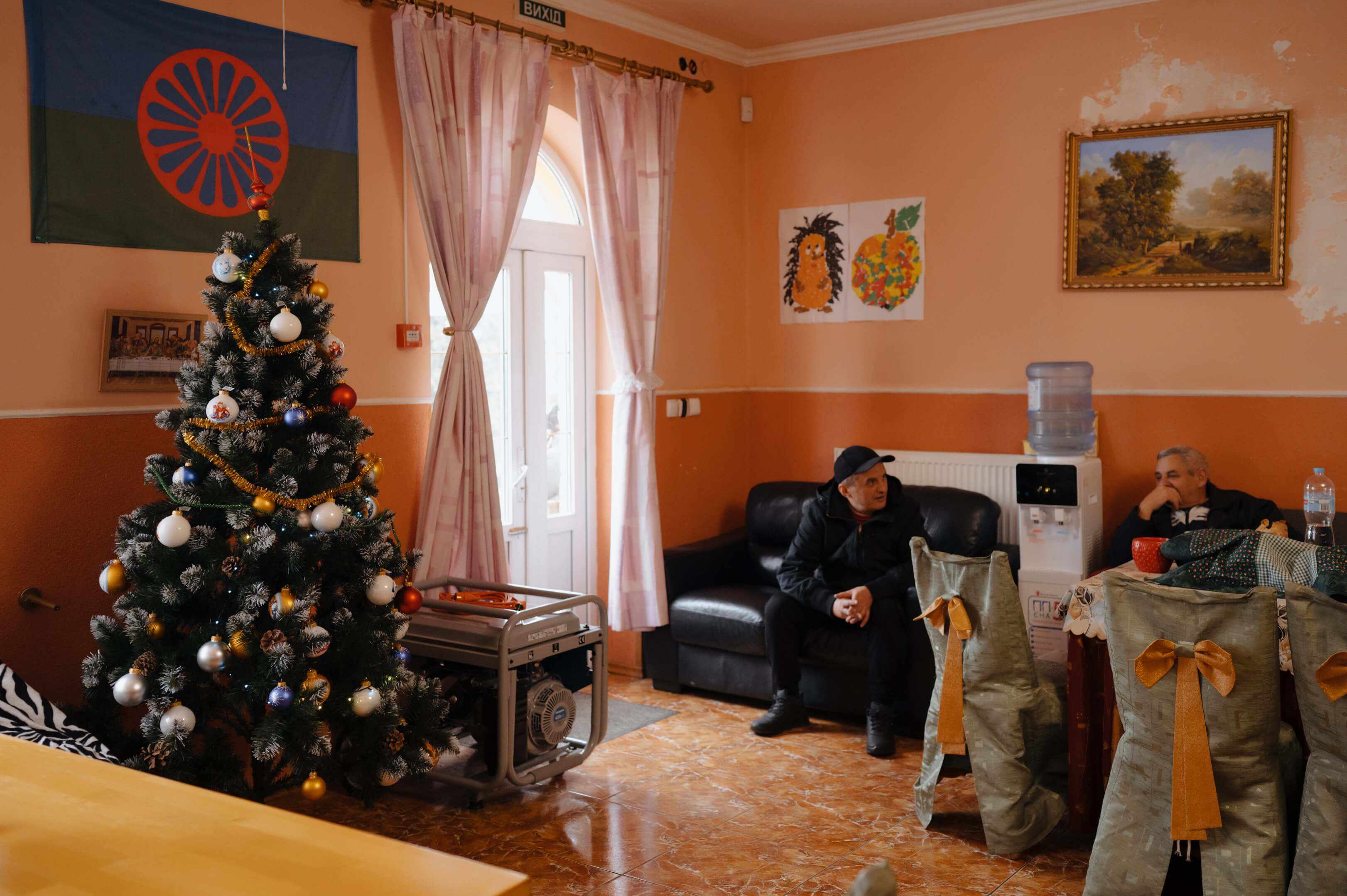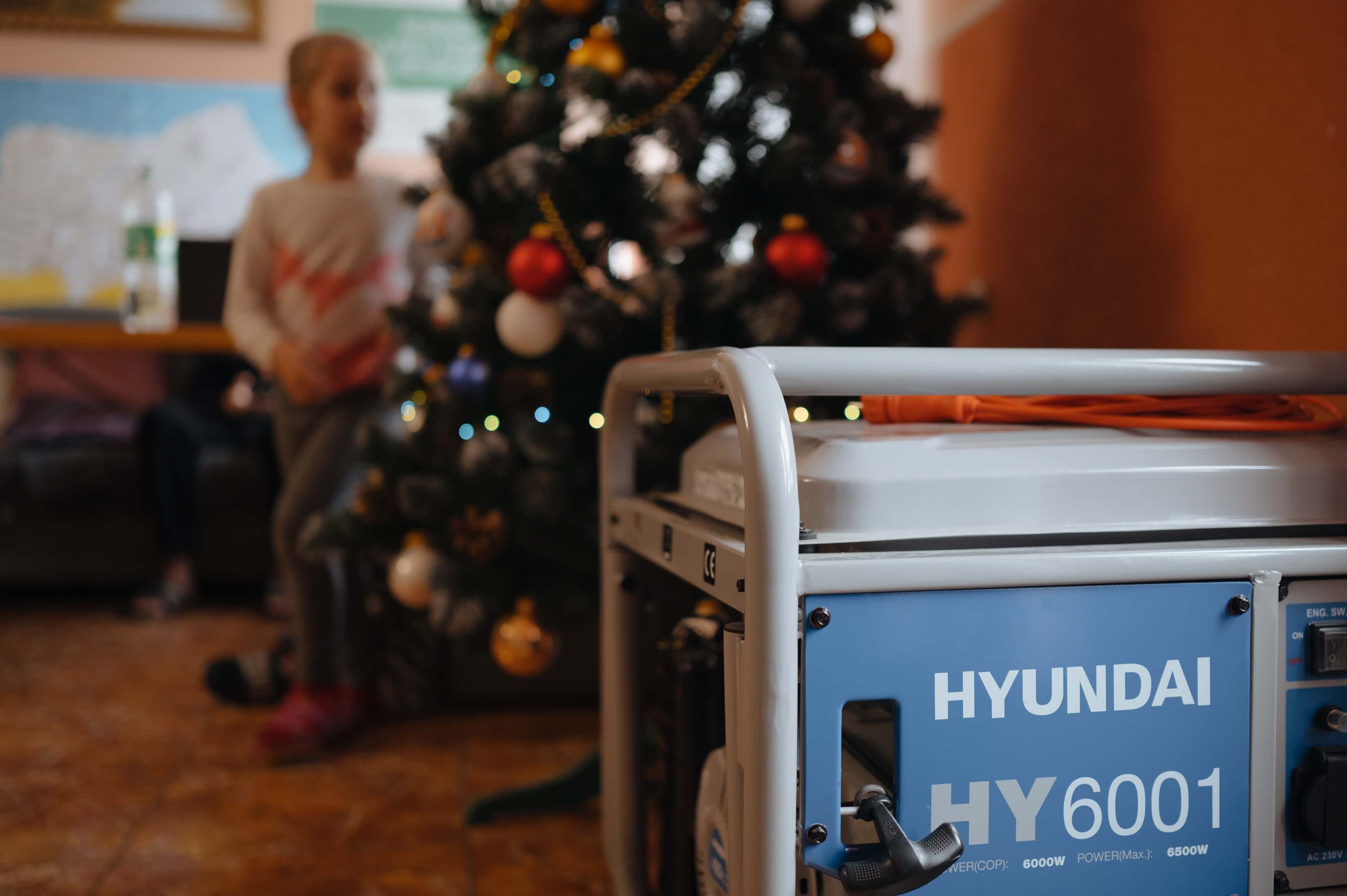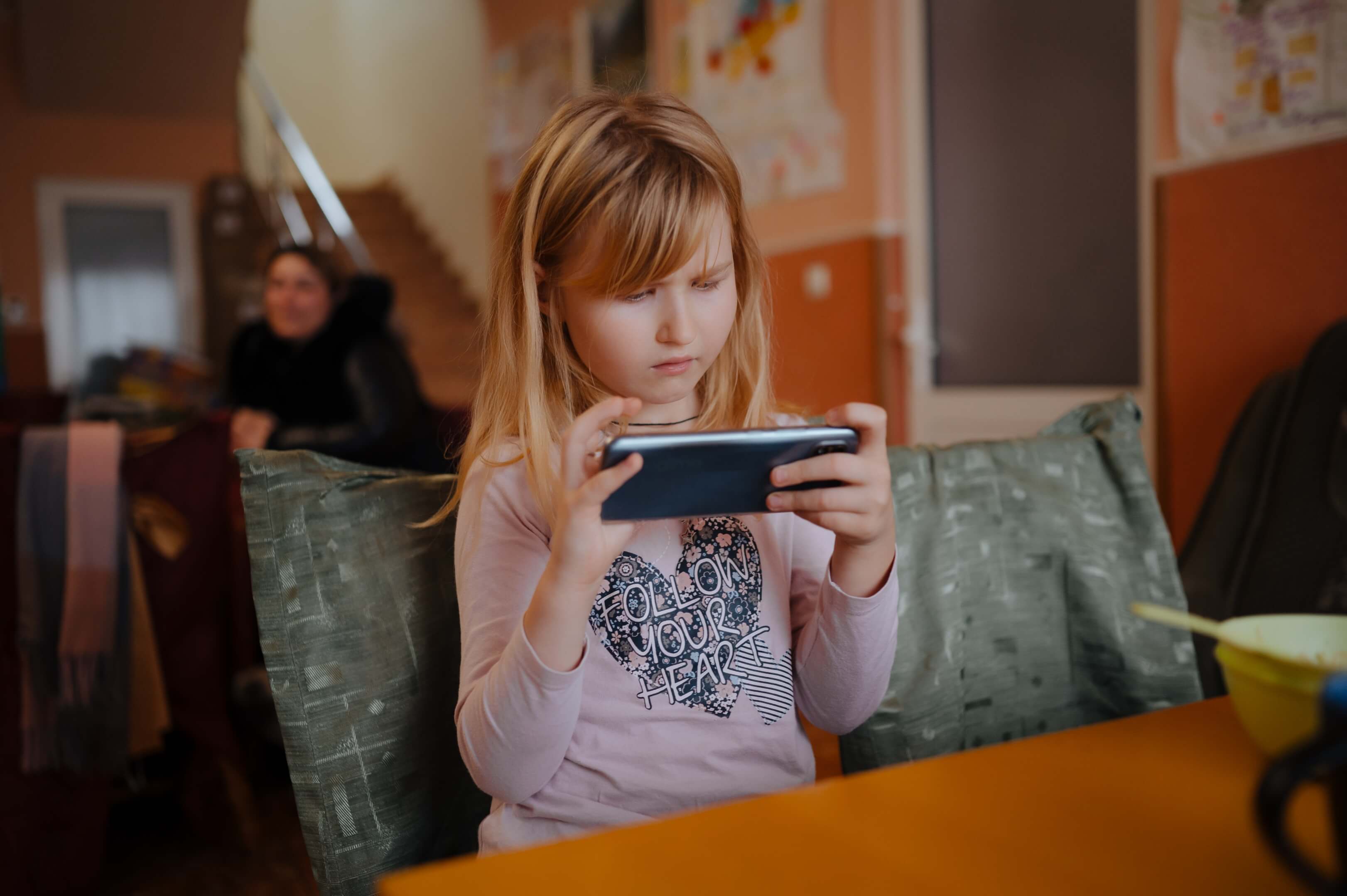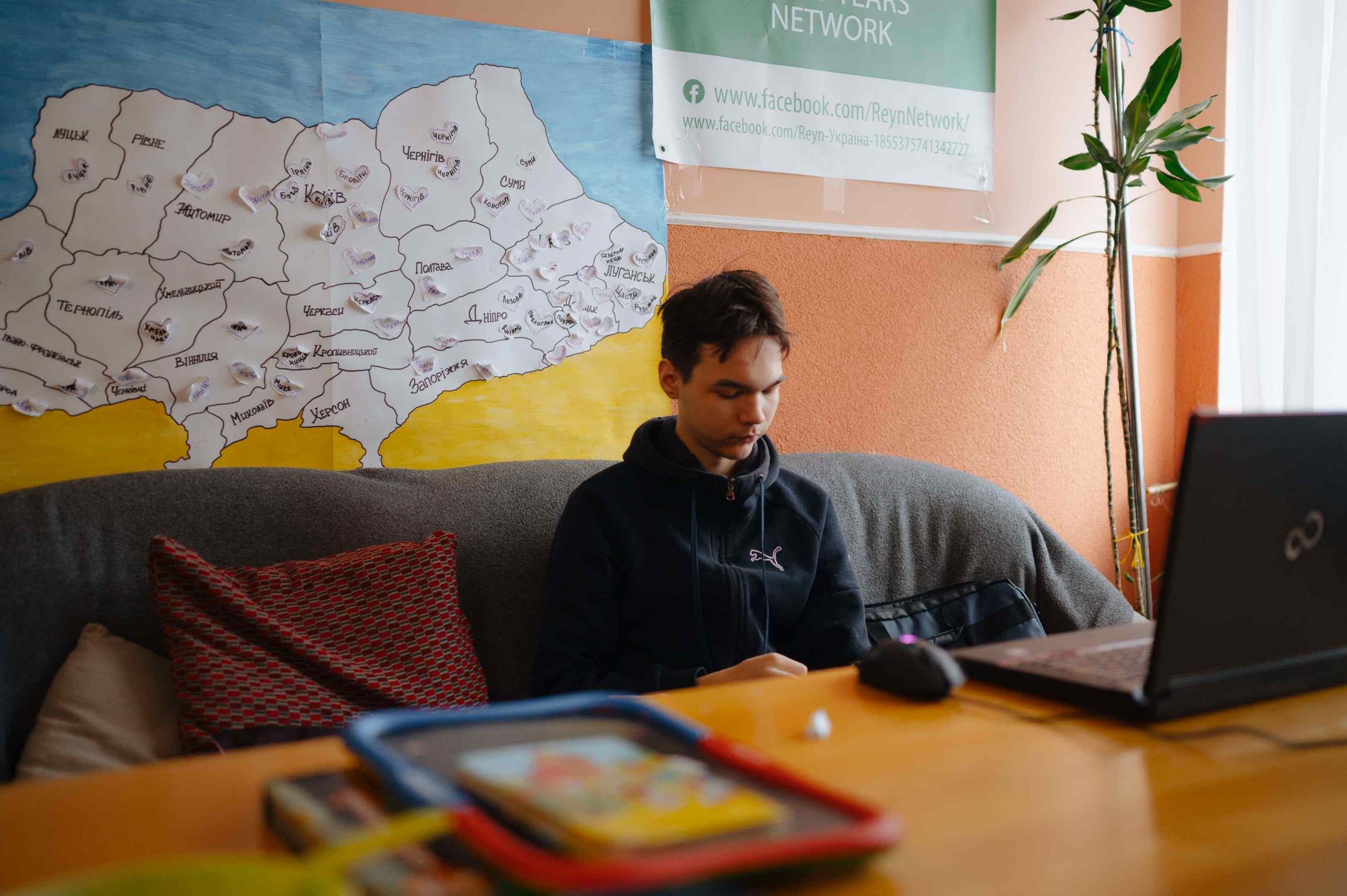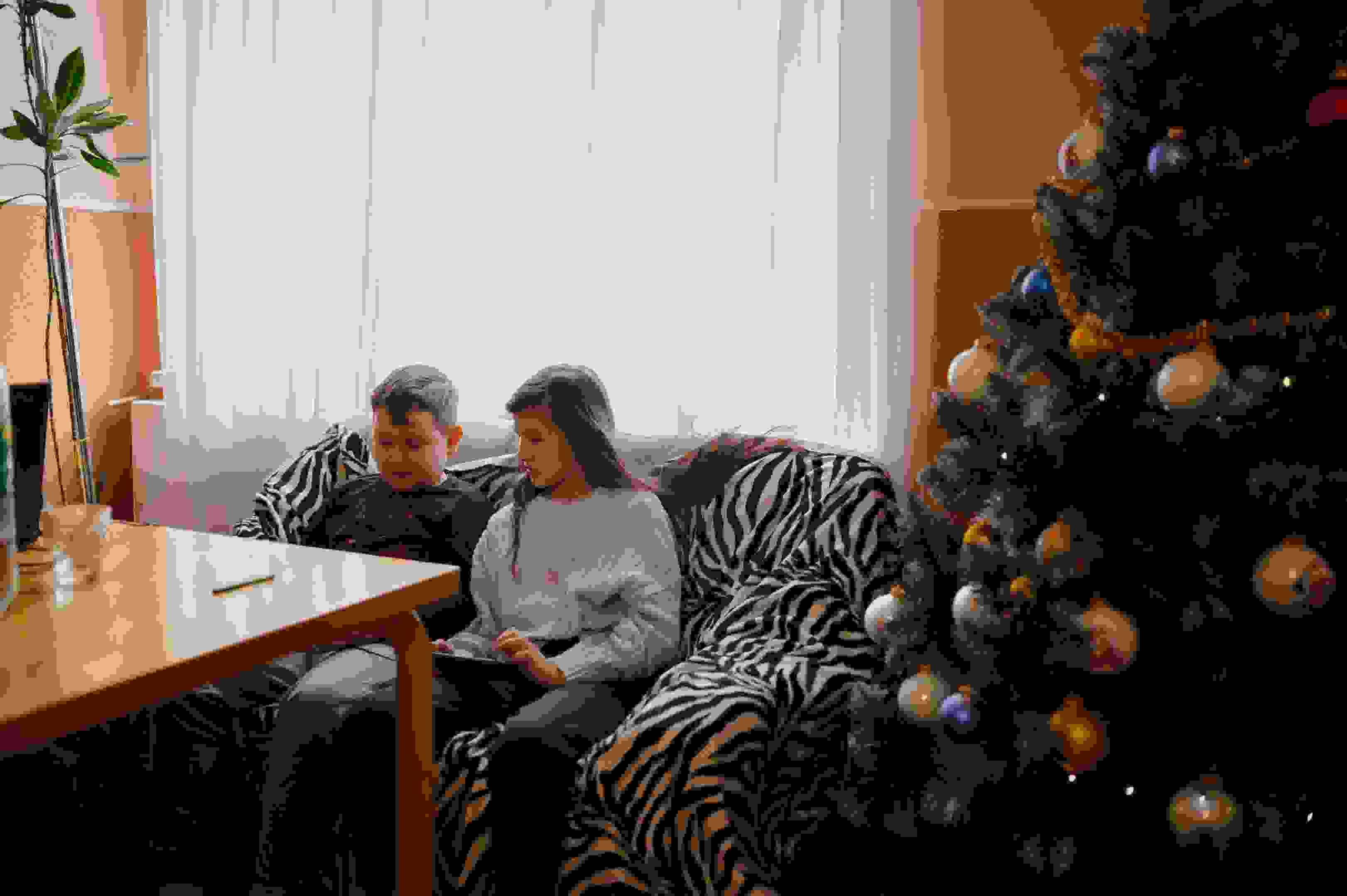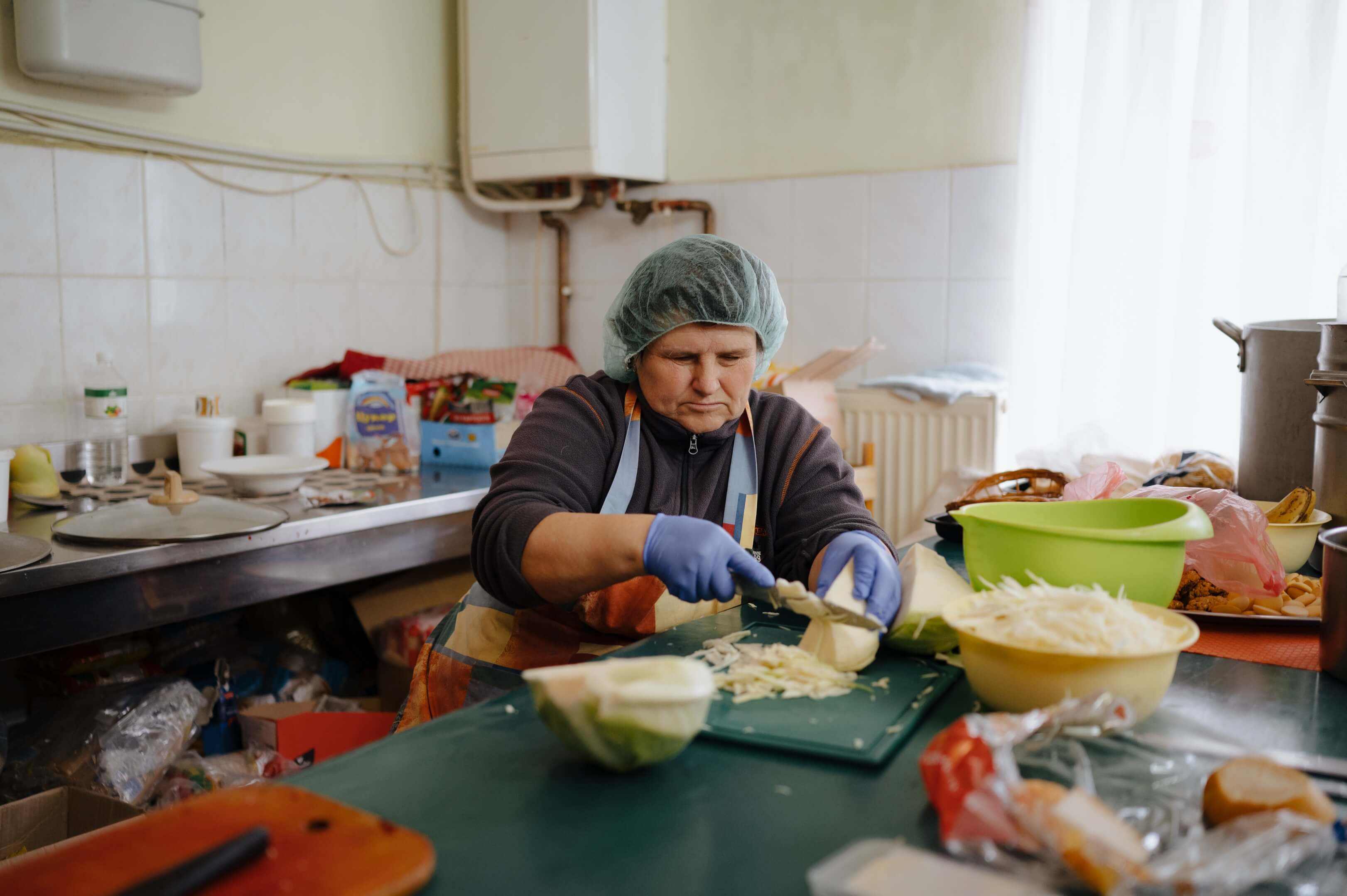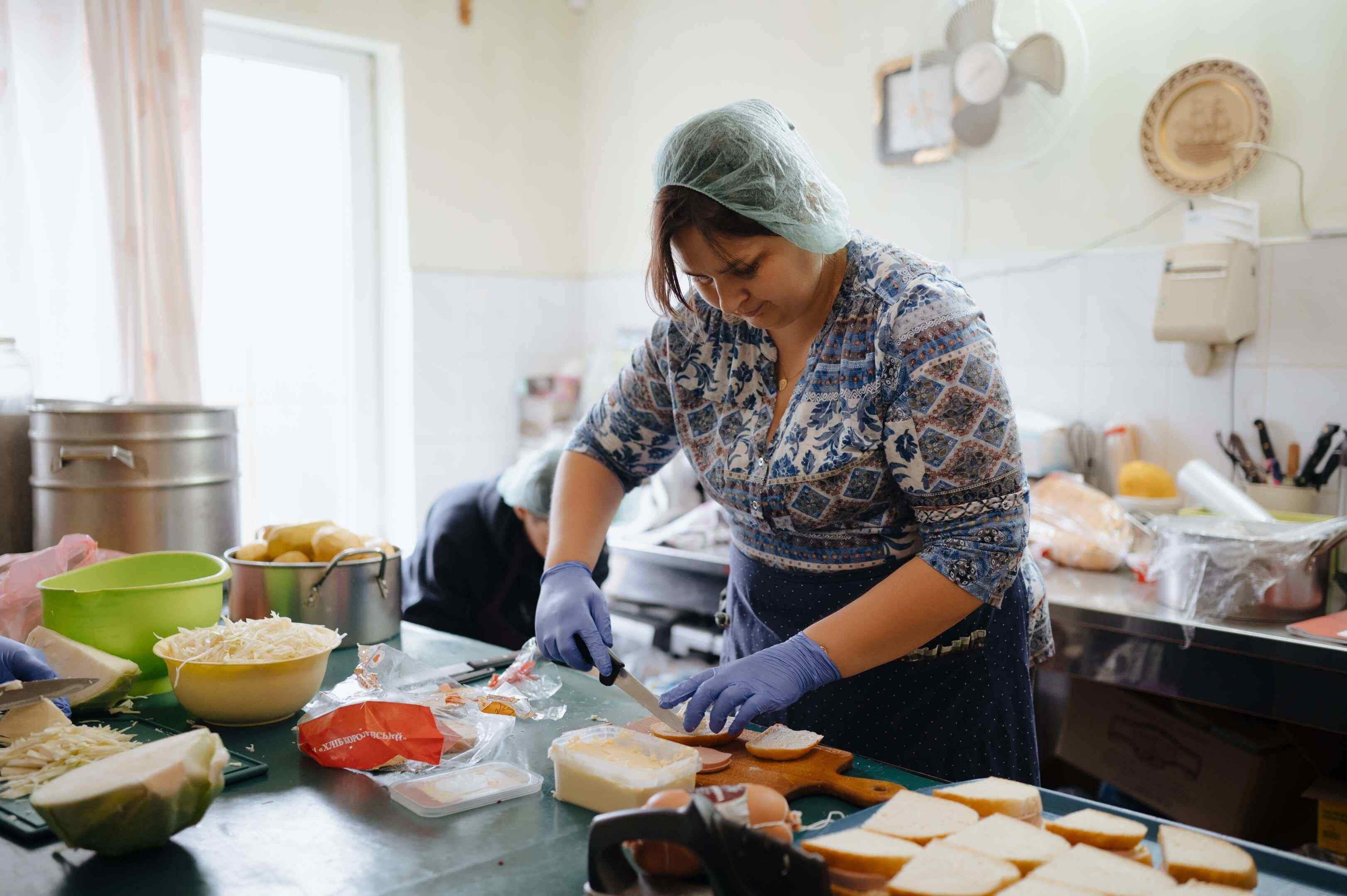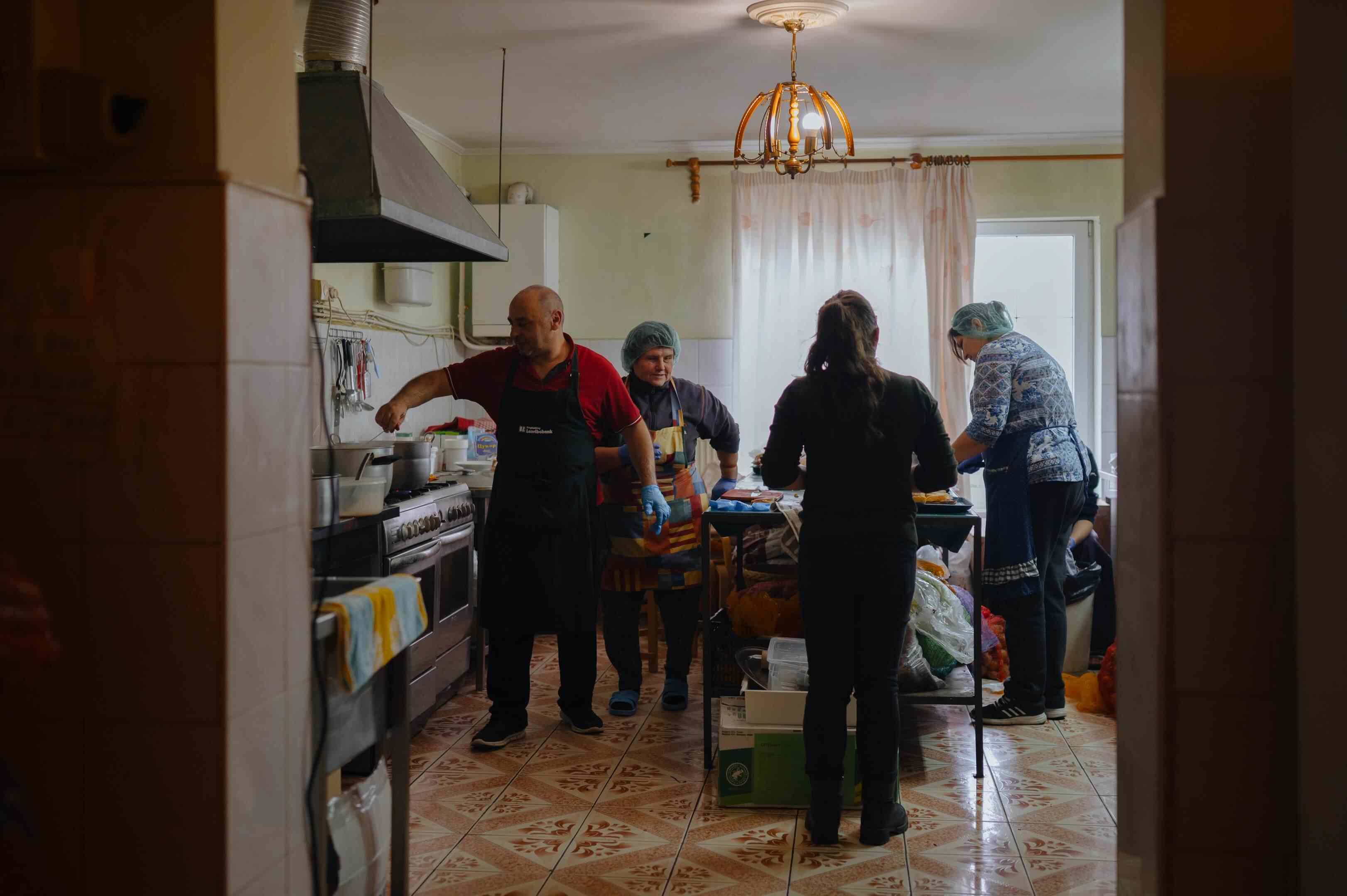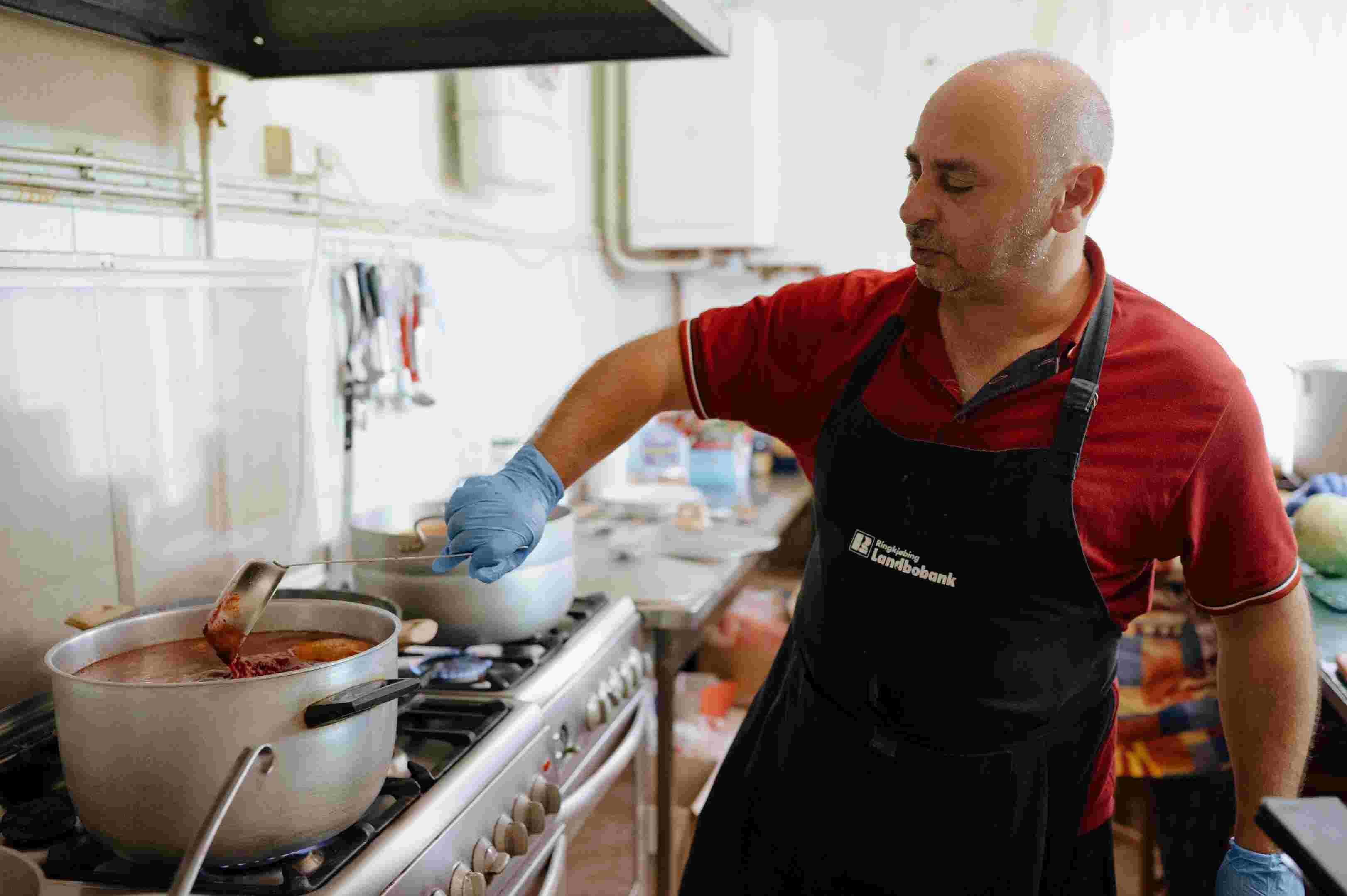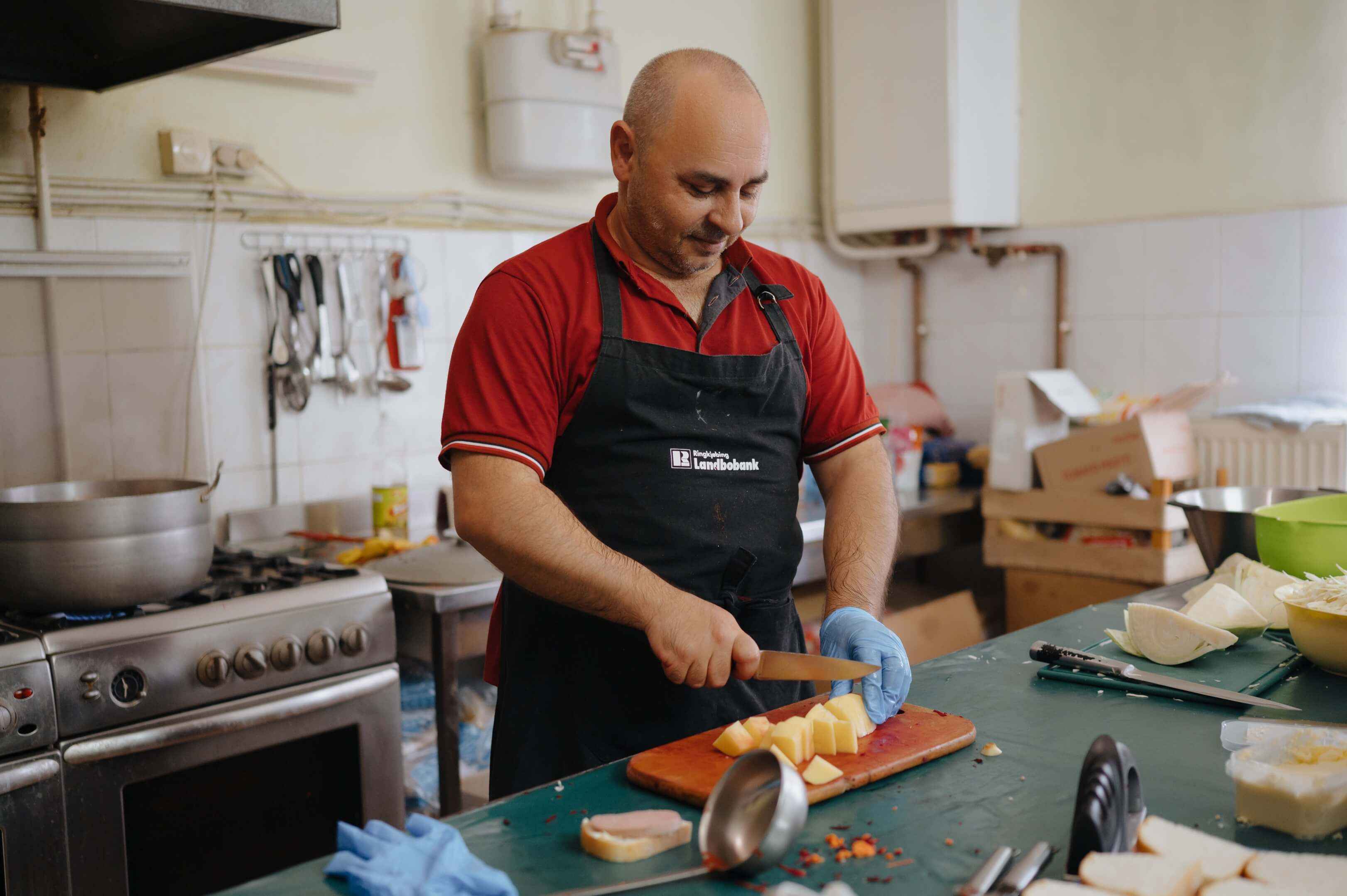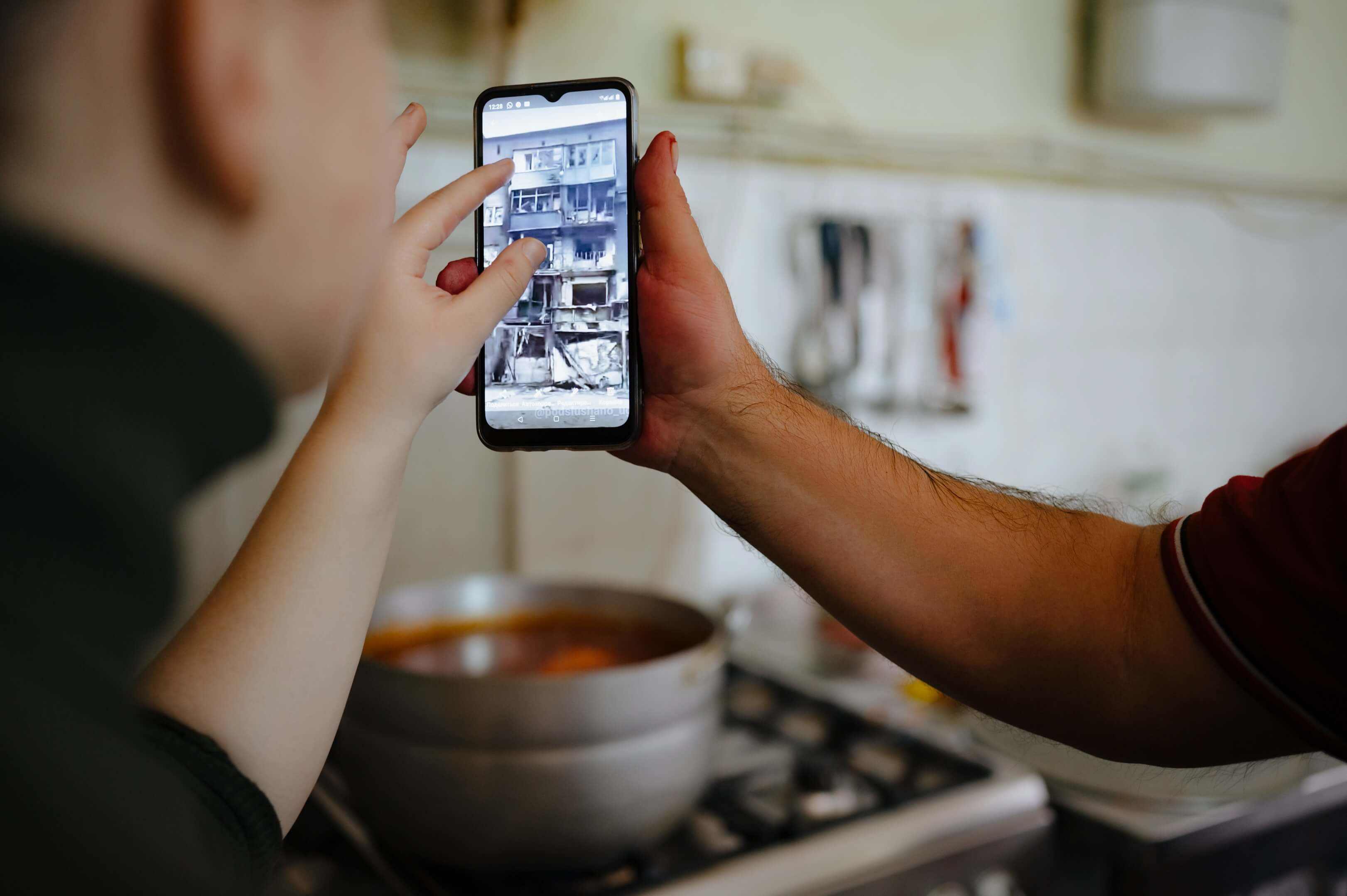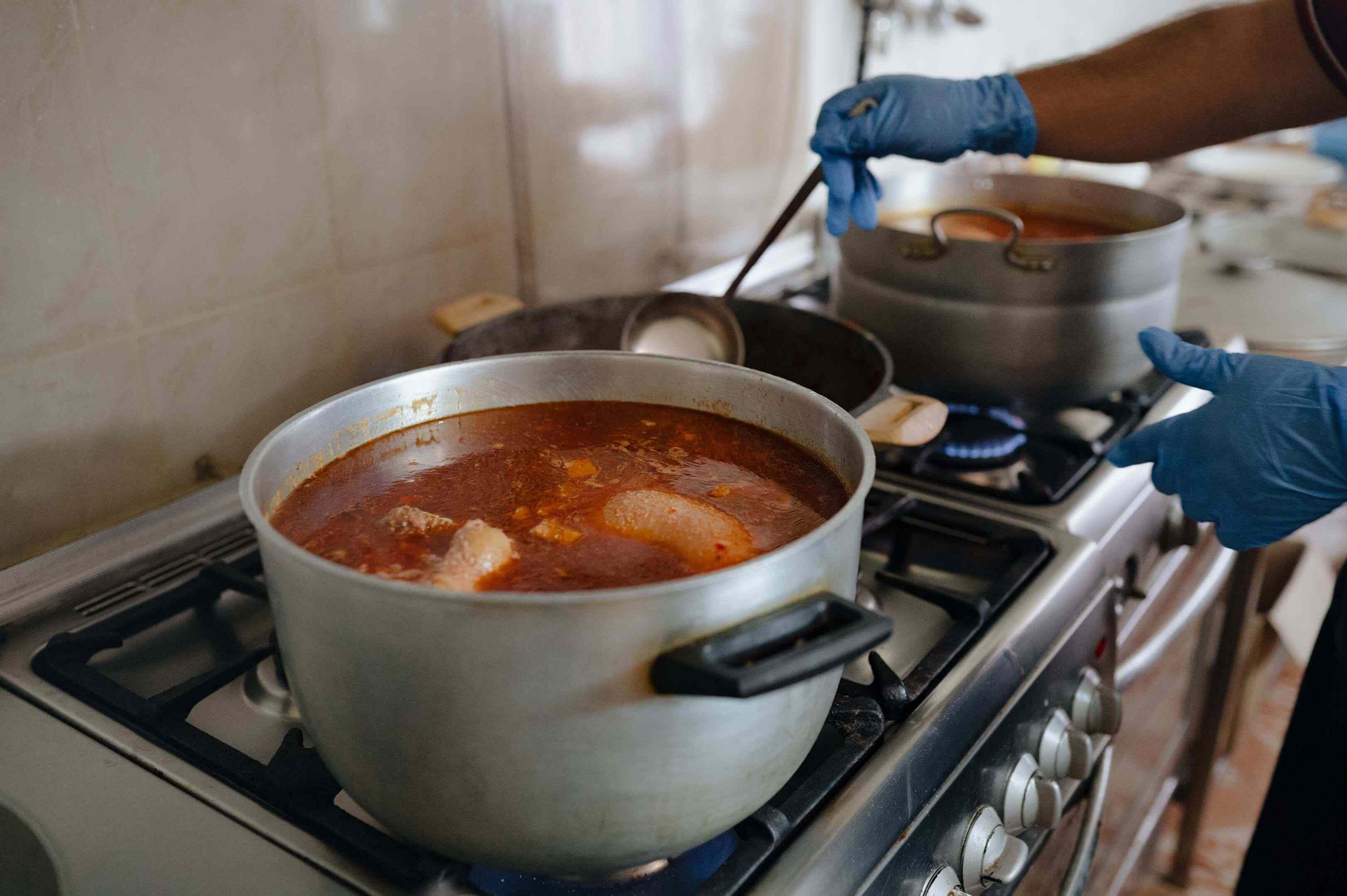No doubt, Eleonore Kulchar is the very Ukrainian Roma woman, charming and encouraging people with her striving to help every man and woman.
She is the leader of the charity fund “Blago” (meaning “a blessing”) and the national coordinator in the project REYN-Ukraine, which has to do with early learning for Roma children.
It really feels in every single words she says – how sincere her support for the job is. During the half an hour of our conversation, she got a few calls; some other people came up asking something important, while others just wanted to greet her.
And, even as she works in a non-stop mode, she continues to radiate huge power, literally felt in the air. “I know I must do it. I ask God for help and feel as He fills with power every cell of my body”.
Now Ms Eleonore is taking care of the first and so far the only shelter for Roma. Our article below narrates of its weekdays, problems and residents.
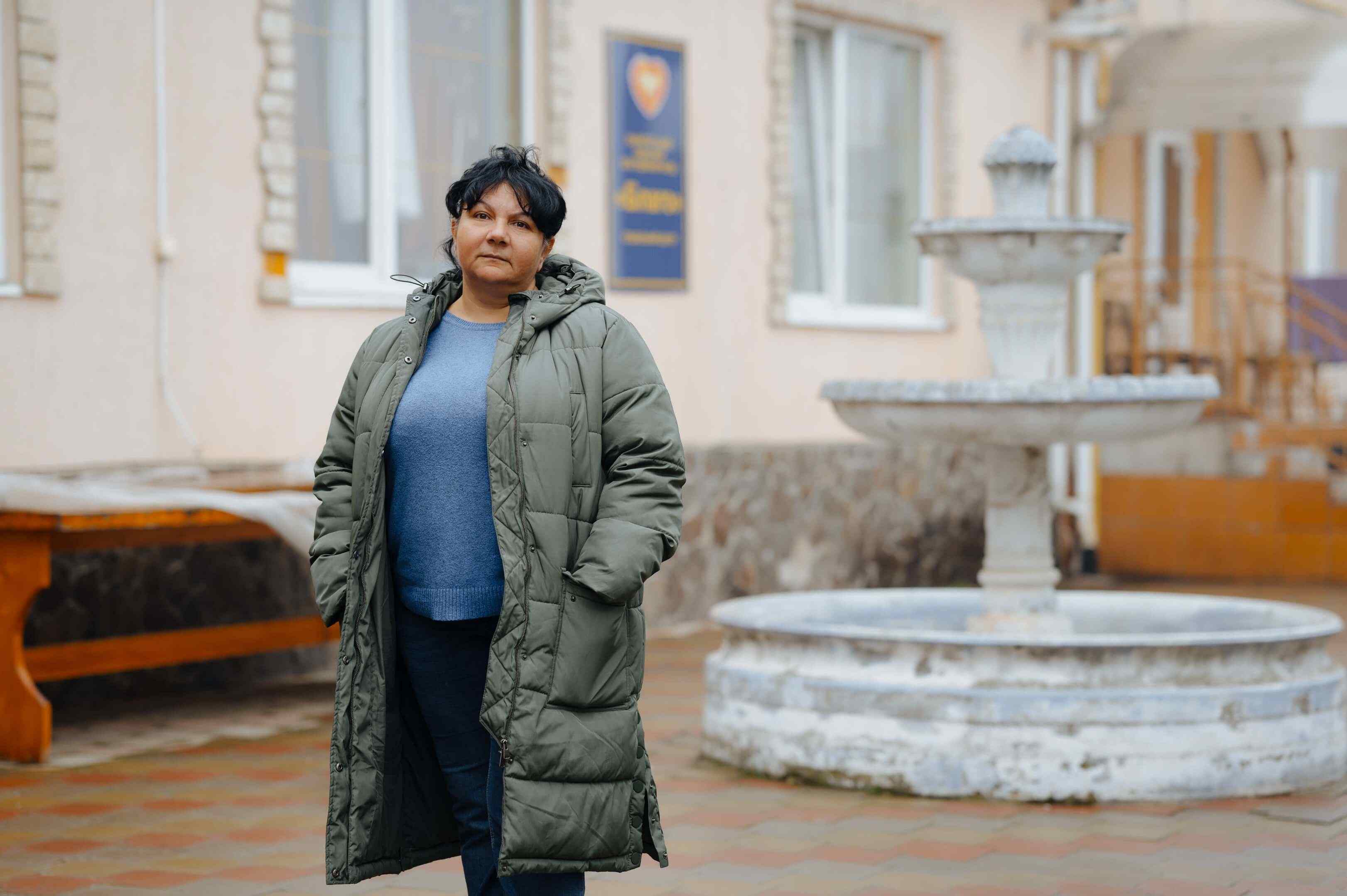
“Roma women carrying their sucklings were just sitting on the cold floor at the railway stations”
– I came to the railway station in February. What I saw there shocked me. Roma women with small breastfed children were sitting right on the floor, on the cold paving stone, and crying was heard from everywhere.
Of course, everyone has problems but Roma need support, too! For the war is on, so people cannot be discriminated or divided! And nobody wanted to accept them to any asylum. It shook me to the core…
As the war broke out, the discrimination, carefully concealed or hushed, broke the surface. Now everyone’s saying: “Roma should be helped”. And in reality, if not for donors, who would help?
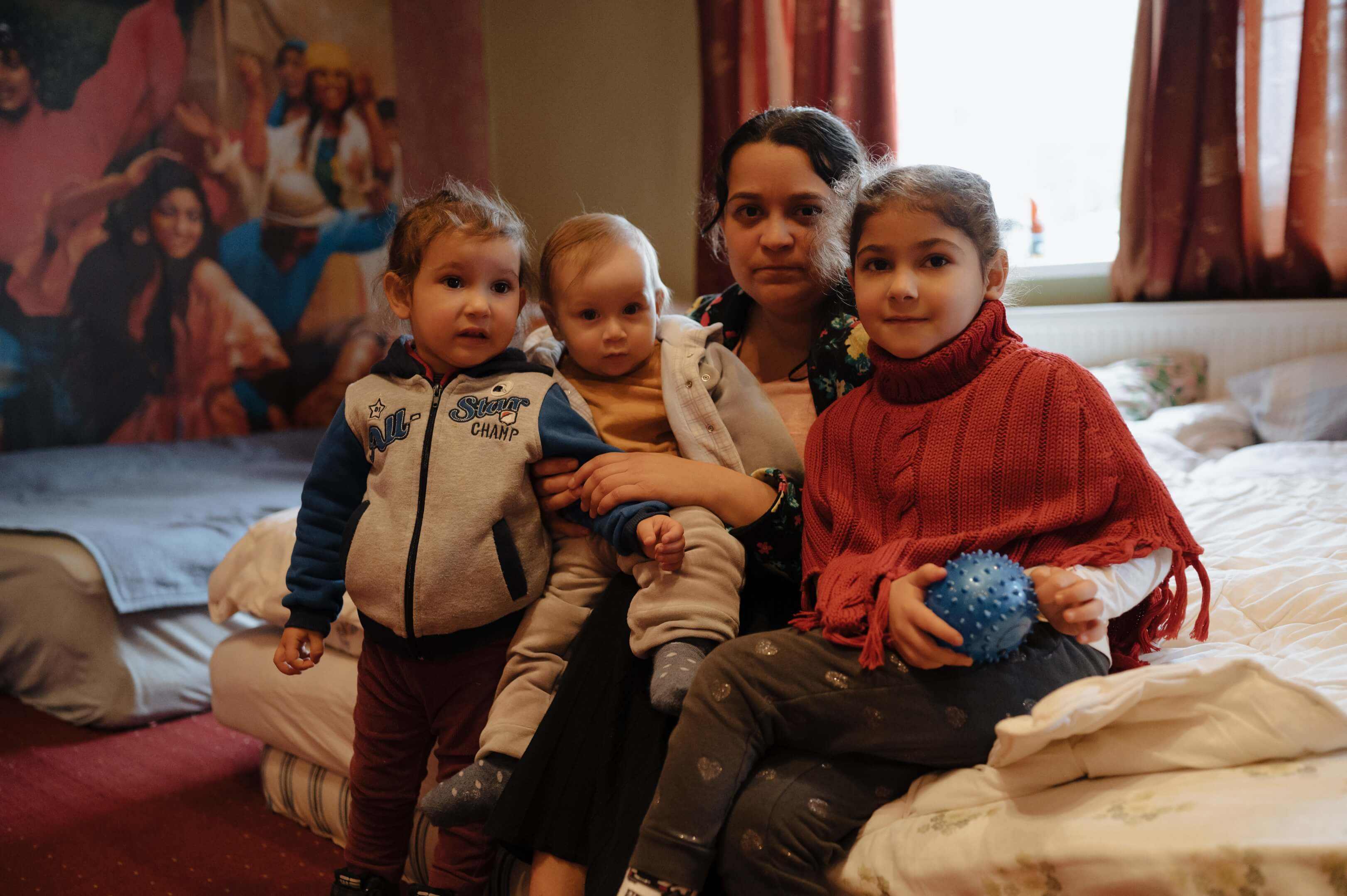
Having seen the situation at the station, Ms Eleonore made a decision: an asylum must be organized immediately, to give accommodation for Roma families. At that time the “Blago” fund was renting a facility in Dendeshi Street, where lesson in early learning were given for Roma children. On February 24, the school closed down, and they tried to organize a shelter for a start.
– It is a very small room, with space for 50 at large, and we welcomed 150-200! We had no water, no heating, just a small room, where it was cold. And it’s winter outside!
The people flow was enormous: hundreds of people came, ate, spent a night and got ready to leave Ukraine.
In the first days, many were able to hit the road, first of all – to Germany, Holland and other European countries. There were even many people from Transcarpathia who left, too. Many people from our shelter were leaving as well. Staying for a few nights and then they’re on the go again.
Those Roma tell that the conditions they get differ, depending on the country they arrived. And there are some cases when the conditions made people come back.
Ms. Eleanor admits that during the first months of the war, it was hard for her to cope psychologically.
– After these Russian daemons, for there is no other name for them, to our native land, I worked here all the time: at 2 AM I was still here, and by 8 AM I was already back here. That is to say, I slept for some 2-4 hours a day. And it is hard to call that sleeping. Every day I used to hear all those stories, trying to be there for them, be strong, listen to them, and calm them down. And as I came home, I got drowned under this wave of pity and despair. I just sat there and cried.
And God was there with me in those moments, and I just feel that with His support I must do it and I can do it.
Launching a shelter for Roma: how to
At the same time, the woman realized that conditions better than a small cold room, for people have to be warmed and fed.
– But I clearly saw that nobody wanted to take Roma. Nobody gives rooms as soon as they get to know that there would be a shelter for Roma…
Then the lady addressed a Roma businessman, Aladar Horvath, the owner of Uzhhorod’s first Roma hotel and restaurant entity “Romani YAG”. By then it had not been working for 9 years, so the facility stood empty.
The rental rate for the first month was 10K dollars. It was a fantastic amount for us but I am truly grateful to Serhiy Ponomariov, Head of Roma project by the Ministry of Finance, the “Renaissance”, for supporting us at the tense moment and helped find the funds to cover the expenses.
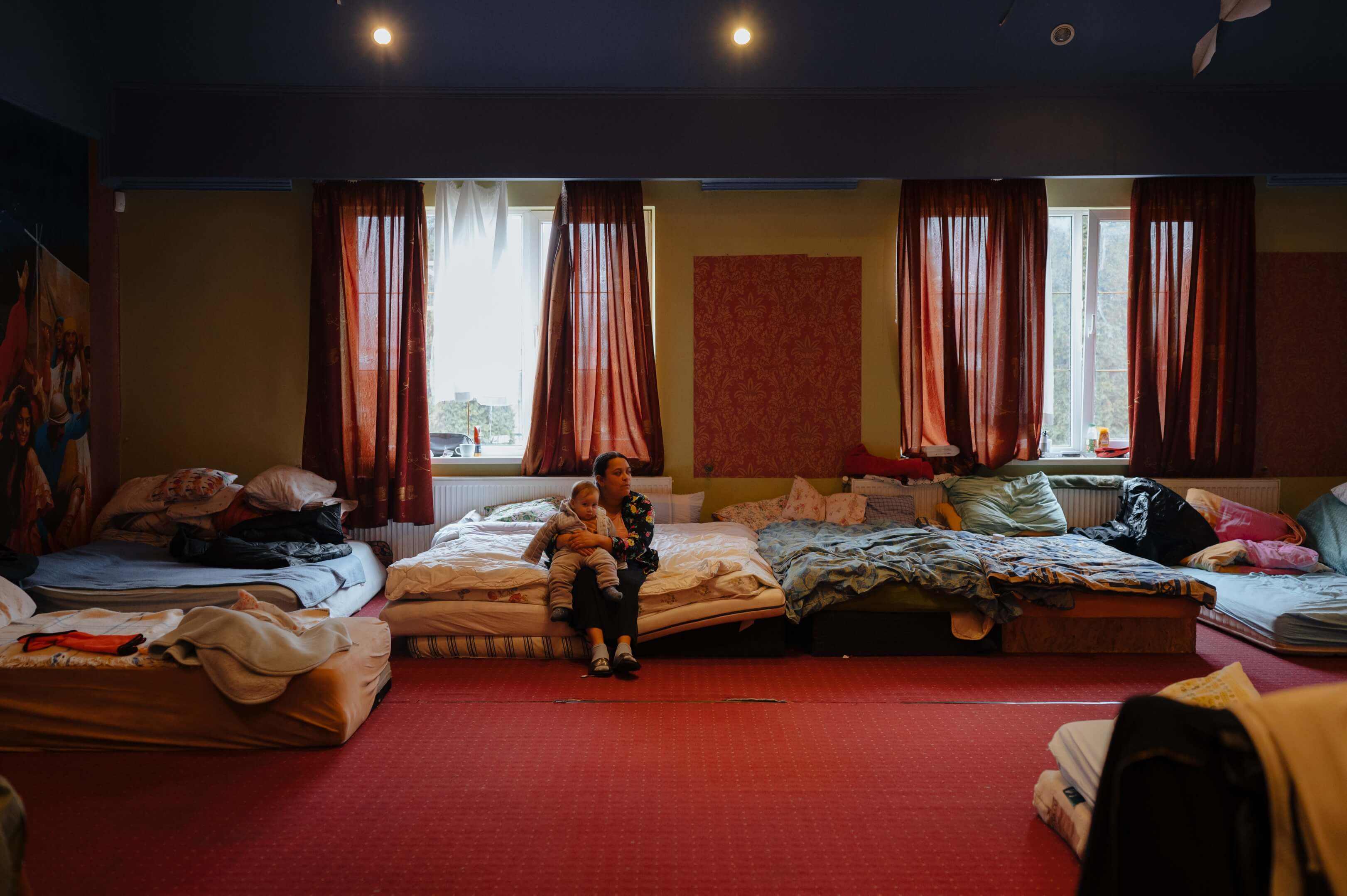
Finally, they managed to lower the rental price, and now the 740 sq. m. of the selter, including the kitchen, the restaurant major hall and a few rooms on the second floor, are worth of 180K dollars (equal to 5K dollars).
Eleanor also has to pay for the utilities and three-time meals.
– We keep accurate and clear records and reports. As we are supported by several organizations, we publish an extended report detailing which organization supported a specific expenditure item. We never happen to have two sponsors covering the same item at the same time.
Eleanor’s fund also does the best they can to help IDP (internally displaced persons) from all over Uzhhorod. Right before we recorded our interview, a man from the city of Mariupol had just been to the Fund, receiving his packet with food.
They also support local Roma from Transcarpathia, for instance last week they took food products over to Roma camps in the villages of Serednie and Poroshkovo.
People do exist but not legally: problems with registration for Roma
By the time of our interview, some 75 people dwelled in the shelter, 4 of which were passing the border. There were 19 children among them.
But there were days when we welcomed up to 155 people. The highest peak was, of course, in March and April.
As the shelter worked, during the first month we were so busy with the organizational processes that we never thought of registering anybody. That’s why there was a great flow of people during March; about 400-500 people not fixed anywhere.
It was later that I clutched my head, thinking to myself: how am I supposed to prove my expenditures? So by late March we started registering.
Since the registration started, some 1250 people passed through the shelter. Apart from free accommodation, they received free three-time meal, personal care products.
– But that is only according to our records, in reality there were many more people.
– There are some cases when we cannot duly formalize people as they have no documents: not only their passports but even birthday certificates. That’s why we used to write down the formulation: “According to the person’s words, she is soand so by name, born in that place”.
And so it turns out that the people exist but not legally. And such events are not just individual cases.
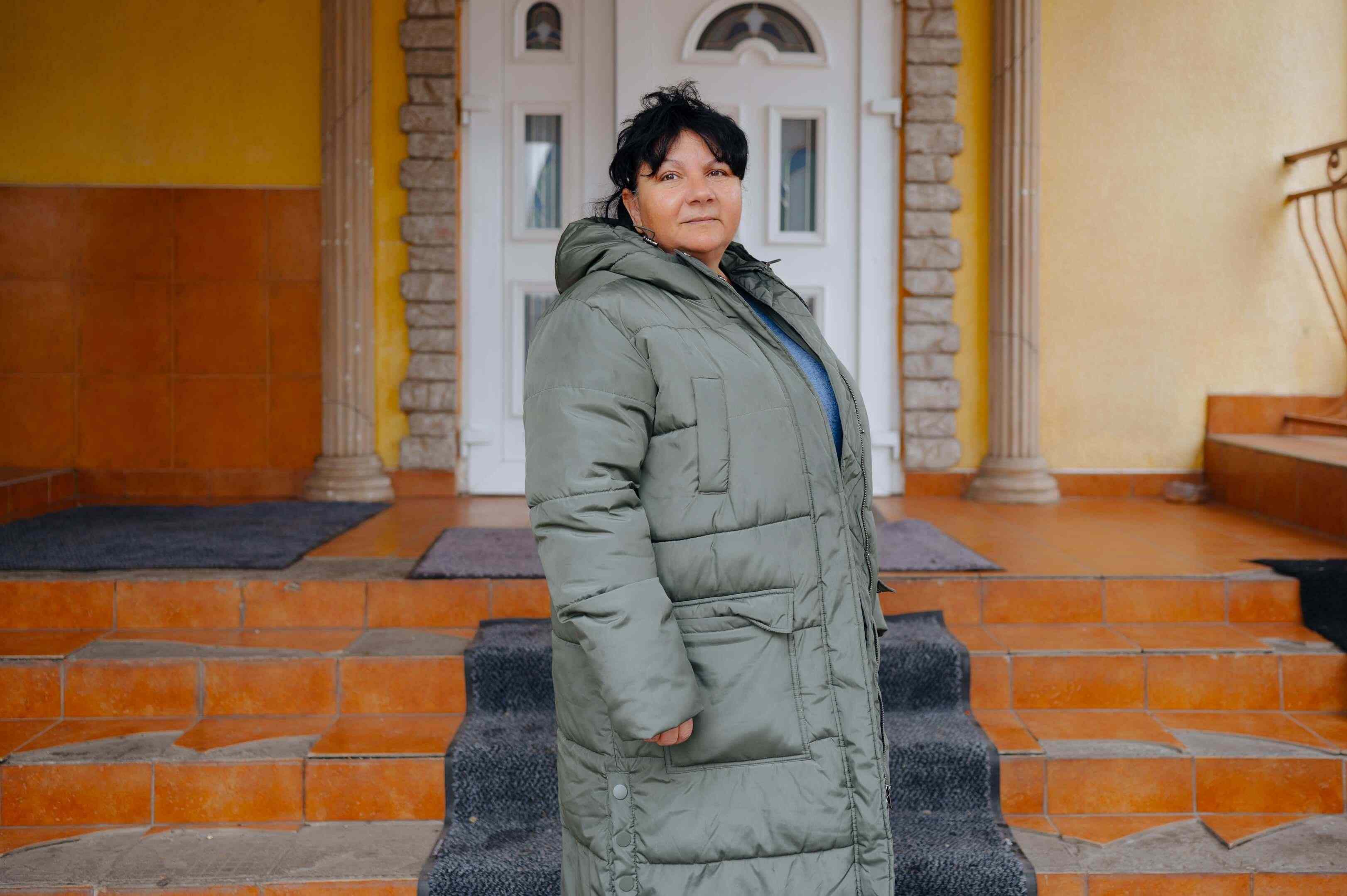
Everyday life, household and holidays
The shelter’s team consists of people – cooking, teaching, helping with household – and they are also displaced people. They learnt of the shelter from social networks or after personal conversation with Ms. Eleanor. There are many teachers among them and even headmasters who used to be members of the REYN-Ukraine network.
As the full-scale invasion broke out, the network functioning ceased, as its affiliates, firstly in the cities of Kharkiv, Odessa, Dnipro could not continue functioning at full scale, while others had to change their format to volunteering activity.
For example, Ms. Agnessa from Kharkiv is also a teacher, with 20-year experience of school work, now helping kids in the shelter with their home assignments. So educational activity does not stop even in such conditions.
— I do believe in Ukraine’s victory, that all of the country’s parts will be returned. Here we have people from the cities of Luhansk and Donetsk. And I am quite sure that after the Victory we will be able to launch the network anew even within the de-occupied territories – reassures Ms. Eleanor.
We also met Ms. Natalia and Ms. Rita, one being from Kharkiv, the other – from Donetsk region. They made us some tea and told something about themselves. Some elderly women from the East were already working in the kitchen, arriving a day ago. They compile the menu by themselves, even though within a limited budget. During the interview, they were cooking some buckwheat cereal with gravy, cabbage salad and even poppy rolls. All cooked with love and in a family way. All of them are dressed in pinafores, gloves, puttering around at the table, at the new oven or the gas stove.
We got talking. The women remember their living under shellfire for months, and they cannot help crying. Many don’t have their houses anymore but only their husbands with cancer, to be operated shortly in Uzhhorod.
They are not Roma but looked for shelter for the period, finally finding Eleanor. And they say they were welcomed in a family way.
Next day the chef in the kitchen was Mr. Yuriy from the city of Uhledar. He arrived with his family in later March, hiding in cellars before that for some days. His sister also knew Ms. Eleanor. So when it became impossible to sit in the hiding place, and his apartment burned down from Russian phosphorous bombs, they decided to move to Uzhhorod.
During the almost 9 months of living in Transcarpathia, Mr. Yuriy says he feels himself a local – he likes to cook, and, learning the recipe of Bohrach, he wanted to try to cook it. He is also used to the local dialect, so now he climbs not stairs but “haradychi” (local dialect word for stairs).
And even though he feels himself at home in Transcarpathia, he still wants to come back after the Victory: “I don’t know what it’s going to be like, as our city actually is no longer there. But I need my home”.
We recorded our conversation on Christmas Eve. And, as we asked them – how are they going to celebrate the holiday, Ms. Eleanor jumps up from her chair in excitement and shows an artificial New-year fir tree standing out in the middle of the room, telling of the presents they have prepared for the kids. And she adds in the end:
— We will bring together our tables and celebrate together, thank God for the opportunity to be here and ask Him to save lives for our people, soldiers and grant us Victory.
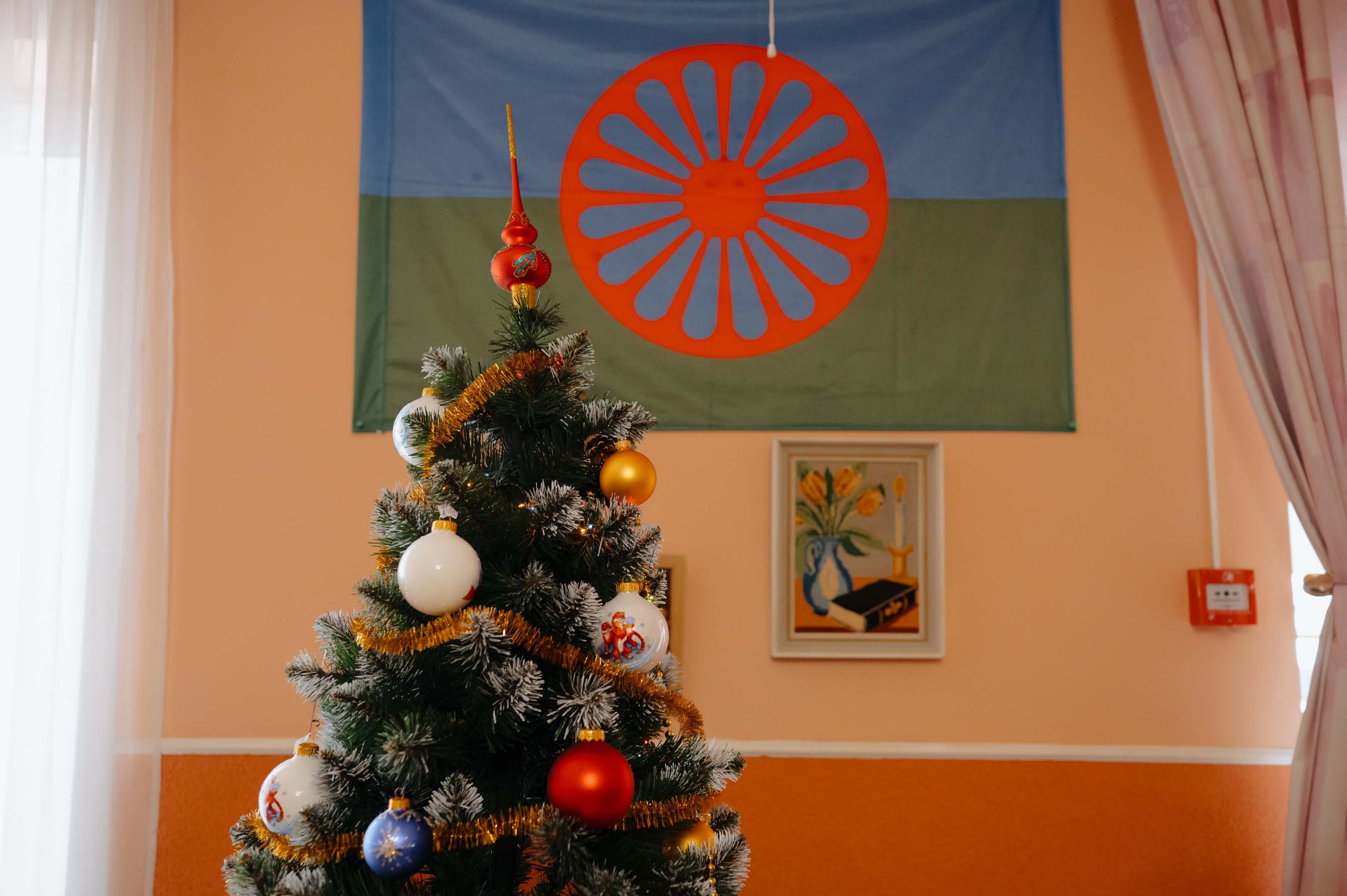
Article by Halyna Hychka, the Varosh
Photos by: Taras Vovchyn
This article has been compiled with the support from the International “Renaissance” Fund, within the scope of the project “Counteraction to prejudices and stereotypes towards Roma during war, consolidation around the common strive for victory”. The article reflects the authors’ opinions, which may not necessarily coincide with that by the International “Renaissance” Fund





